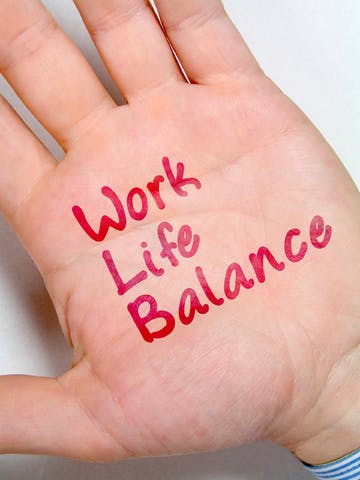Ever since the recession started, we’ve heard the same things about work/life balance:
- Jobs are more important than work/life balance;
- We can worry about work/life balance once we’re back to full employment;
- The unsaid threat of pushing hard to help an employer out or else; and,
- Work/life balance may be a myth (maybe a post for another day).
Balance has gone out the window in companies that have struggled in the last few years. The word has been survive. And I think many of us who cover the employment space thought that since work/life balance was out of the mind of employers, it was also out of the mind of employees.
Not so fast.
Business consulting firm StrategyOne has released a survey about work/life balance and employee perceptions and the results were mixed to say the least. Just as a contrast, check out the difference in these results
Question text: In your opinion, how much of a problem are work/life balance issues in America today?
Answer August 2010 TOTAL PROBLEM 89% Significant problem 54% Minor problem 35% TOTAL NOT A PROBLEM 11% Not really a problem 9% Not a problem at all 2%
Yet contrast this with this question later on in the survey:
Question text: Do you believe that you have an adequate work/life balance?*
Answer August 2010 Yes 69% No 31% * Asked of those who are employed (either full time or part time)
So while people generally believe that work/life balance is a problem, they also generally believe that they have adequate work/life balance? Of course, in the press release from StrategyOne, they highlight the negatives gleaned from the survey (what is a business consultant without a business problem?) which is what much of the press have focused on. But let’s dive deeper into the current state of work/life balance.
Influencing factors: industry, career level
Mid level associate attorneys were polled about satisfaction with work and a portion of the dissatisfaction centered around work/life balance:
Nearly 45 percent of respondents said that if they leave their firm it will be for a better work/life balance–a 5 percent increase from 2009. A Morrison & Foerster associate wrote that, “Work/life balance is important to more people than . . . [just] mothers and lazy people.”
Still, other industries are simply trying to integrate it into people’s lives in a more pleasing way. Zappos CEO Tony Hsieh describes it:
One way to think about being an employee at Zappos is this: Instead of the work-life balance practiced by many, Zappos strives for work-life integration, allowing people to be the same inside and outside of work.
“Be real and you have nothing to fear,” Hsieh said.
And what’s the net impact of it?
Stunting family and work life
Going back to the original survey, they found that 37 percent believed time with family suffered first when work/life balance was out of whack. Not surprising but how about work life?
ThomasNet’s David R. Butcher examines how workaholics (or people with extreme work/life imbalance) can actually lead to a bad employee:
In the Q1 2010 edition of UNC Charlotte magazine, [Bryan] Robinson — who drew on his personal experience to author the book Chained to the Desk — says workaholics “tend to be separatists, preferring to work alone and focusing on the details of their work, to which their egos are attached.” Often, they “create or look for work to do.”
Even when out of the office, workaholics can satisfy their cravings with cell phones, PDAs, and laptops, never leaving work out of reach.
“In the 1970s we were saying our technology was going to free us up, but it has enslaved us,” Robinson tells the UNC magazine. “There are no boundaries.”
Why we’re mixed up
The problem is that everyone has seen how work/life balance has impacted people. They’ve seen moms trying to balance a growing family and career demands. Or maybe a older man who is looking to relax but can’t seem to get out of the grind. And perhaps they are seeing more of it in wake of the recession.
Not everyone is experiencing a work/life imbalance though (in fact, according to the survey, most aren’t). So it seems like the only surprise is that so many people see work life balance as an issue for other people, not themselves.
What’s your take on the perception of work/life balance in the workplace?
